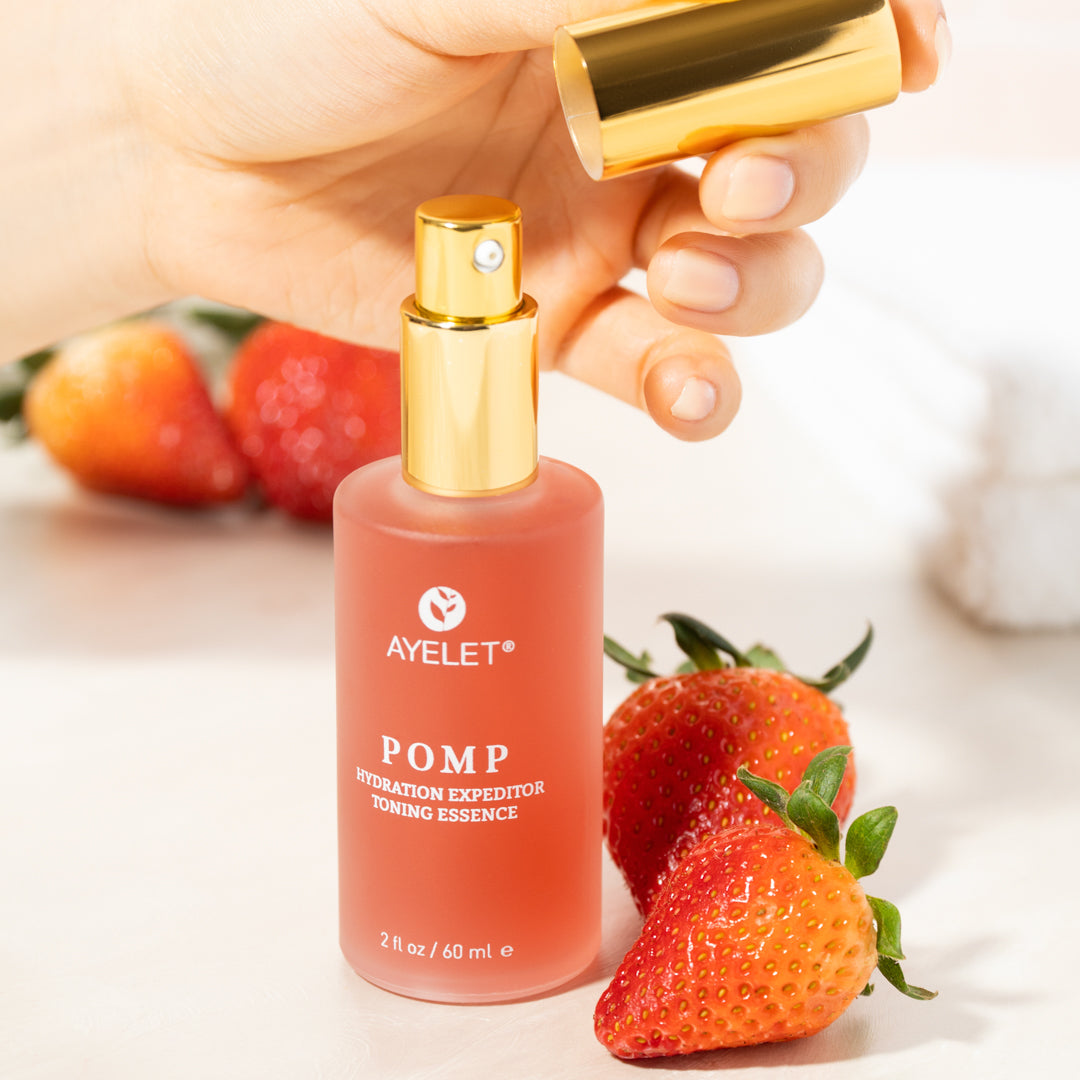What's Causing Your Dry Skin?
A dry skin problem can be extremely uncomfortable, Your skin might feel tight and painful, it might look dull or red or flaky. Worst of all is the itchiness, sort of overwhelming itchiness that makes you feel like you have been attacked with fleas that keeps you awake at night, miserably raking your skin with a back scratcher.
Dry skin is very common, there are tens of million people with itchy dry skin in the country right now. And if the itching weren't bad enough, a dry skin problem can be more than just a superficial issue, experts say.
Healthy skin is your body's primary defense against infection, if you let your skin get dried out and cracked, you could be giving all sorts of bacteria away in. That can lead to more serious problems.
There are lots of good reasons to do something about your dry, itchy skin, your looks, your health, So it's time to put down the back scratcher and really figure out what's really causing your dry skin.
For many, dry skin is not a sign of a skin condition or disease, but is simply caused by harsh soaps, itchy clothing, misusing moisturizer, and long, hot showers. But the medications you take, and even medical conditions such as diabetes, psoriasis, hypothyroidism, and malnutrition can also cause severe dry skin. Read on to understand how and why these problems dry out your skin.
Understanding Dry Skin
Let's start with some skin basics. Normal, healthy skin is coated in a thin layer of natural lipids or fatty substances. They keep in moisture, leaving the skin soft and supple.
What causes dry skin or xerosis, as it's known medically? Usually, something in the environment or something you're doing to your skin, is stripping away these fatty oils, leaving your skin unprotected. Less often, the cause is internal; a health condition or genetic predisposition is making your skin dry out.
While patches of dry, itchy skin can appear anywhere, it's most common on the arms, hands, lower legs, and abdomen. Dry skin is often felt more than it's seen, but on some people, it can be noticeable and embarrassing. For many African-Americans, dry skin is a special concern, since the flakes of skin can look gray.
If untreated, dry skin can sometimes lead to dermatitis - inflammation of the skin. The good news is that just as most causes of dry skin are external, most cures for dry skin are external. With careful skincare, you can usually solve the problem.
Dry Skin and Moisturizer Misuse
If you've been contending with dry skin, you've probably already tried a moisturizer if not dozens. But while moisturizers are a crucial part of dry skincare, experts say that we don't always use them very well.
The biggest mistake we make is applying moisturizer on dry skin when it's least likely to help. You need to apply on moisturizer when your skin is still damp to allow the moisturizer to trap in the moisture that is still on your skin. Your skin shouldn't be totally wet, just pat your skin dry with a towel and apply it on. Let it soak in for a few minutes, and then towel off the excess if you feel there is any.
You've also needed to get the right type of moisturizer. It’s recommended that people with dry skin get mild moisturizers that have no perfumes or alcohols, that are rich but not greasy, that you can apply and go within minutes of applying.
Dry Skin and Dry Air
Dry air is probably the most common cause of dry skin, especially during the winter, It draws the moisture right out of the skin. Dry skin during winter can cause a winter itch.
While cold, harsh weather does dry your skin, another big problem in the winter lies indoors the dry heat churned out by your furnace. During the summer, air conditioning can have a similar effect. To counteract the dry heat, start with a moisturizer. Turn down the thermostat a bit in the winter can also help.
Other dry skincare tips include using a humidifier in your bedroom, bundle up with hats, scarves, and gloves when you're outside.
Long, Hot Showers & Baths Also Dry Skin
Prolonged exposure to water especially hot water can wash away the natural oils that protect your skin. If you get out of the bath or shower and skin feels tight, it's dried out.
Choose showers over baths. But that's not all. If you're accustomed to waking up in the morning with a long shower, the dermatologist's advice is to limit showers to a few minutes and use lukewarm water instead of hot.
Afterward, pat your body dry with a towel rather than vigorously rubbing it and put on a moisturizer right away.
Can Soap Dry Skin?
One of the biggest problems people have with dry skin stems from their soap, soap can strip away your skin's protective oils, and we tend to use way too much of it.
While our doctors and our mothers always told us to wash our hands frequently, that can also lead to trouble. Ironically, while trying to rid ourselves of germs, excessive hand washing can dry out the skin and cause it to crack and bleed, making infection much more likely.
Many of us choose unwisely when we're in the soap aisle of the supermarket. We go for harsh soaps, such as deodorant or antibacterial soaps, that generate lots of lather and leave us feeling squeaky clean. "The bubbling and lathering from soap removes the oils from the surface of the skin and can dry it out
For dry skin care, look for milder, natural soaps without perfumes. For many people with dry skin, the best choice is a mild skin cleanser rather than soap
Dry skin is especially sensitive to contact irritants, exposing your skin to uncomfortable clothing could also make your skin drier and itchier.
Go with clothes that feel comfortable the first time you put them on. Instead of wool, choose cashmere, cotton is fine. make sure your clothing is not too tight since chafing can also cause and irritate dry skin. And remember, if your skin feels irritated, use detergents without perfumes or dyes.
Some Drugs May Dry Your Skin
A number of drugs have the side effect of drying out the skin. They include:
High blood pressure drugs, like diuretics
Retinoids like Retin-A used for acne and for other purposes
If you notice the onset of a dry skin problem after starting a medication, talk to your doctor. He or she may be able to help by changing the dose or switching the medication.
Dry Skin Can be Linked to Certain Medical Conditions
Usually, dry skin is caused by external factors. But sometimes, it can be a sign of something going on internally, whether it's a natural physiologic change or an illness.
For instance, dry skin often develops when people get older, especially in women. Changes in hormone levels can cause dry skin as we age, as many as 75% of people over 64 have dry skin. Other people, regardless of age, are simply genetically prone to dry skin.
A number of medical conditions can result in dry skin. Some of the more common of these medical causes are:
- Skin conditions, like eczema and psoriasis. While they usually need direct treatment, careful use of moisturizers often helps.
- Diabetes. Fluctuations in glucose levels can lead to dehydration, and that dries the skin out. Given that diabetes can also slow healing and increase the risk of infections, it's especially important for people with this condition to keep their skin healthy.
- Hypothyroidism. Low levels of thyroid hormone can reduce the amount of oil produced by your skin. As a result, skin becomes dry and rough and moisturizer is unlikely to help. Hypothyroidism is usually accompanied by other symptoms, like fatigue and weight gain, Kenet says.
- Malnutrition. Not getting the nutrients you need can leave your skin dried out. One possible cause is an eating disorder.
Other diseases, both minor and serious, can also cause dry skin problems. The best way to treat these cases of dry skin depends on the illness. Sometimes, getting medication for the underlying condition directly will resolve the dry skin. But in other cases, you might still need to follow some of the basic dry skincare tips outlined above. Ask your doctor for advice.
Getting Help for Dry, Itchy Skin
While dry skin can be a sign of these more serious health conditions, it's usually nothing more than ordinary regardless of how horrible it feels.
So if your dry skin is making you miserable, talk to a doctor. He or she can help you identify the causes and get you the treatment you need. Doctors can recommend medicine if you need it.



